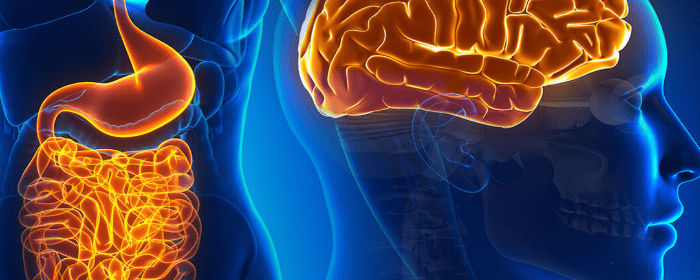
by admin | Nov 24, 2021 | Health Awareness
Have you been diagnosed with leaky gut syndrome? If so, you know the discomfort associated with the condition. Bloating, digestive problems, joint pain, and even difficulty concentrating can all result from intestinal permeability, the cause of leaky gut. Fortunately, some supplements effectively treat leaky gut and manage its symptoms.
L-glutamine
L-glutamine is an amino acid that helps repair the intestinal lining. This immune-supporting and digestion-aiding acid have dietary sources like chicken, fish, beans, cabbage, spinach, and dairy. It’s the most abundant free amino acid in the body.
One study shows that low doses of oral glutamine may improve intestinal permeability, especially after strenuous exercise. It may also help regulate how the intestinal barrier functions during stress.
Collagen Peptides
Collagen proteins are found in almost every tissue throughout the body. Not only are collagen proteins considered to be a building block for healthy skin, hair, and muscle, collagen also plays an essential role in digestive health.
The most easily digestible collagens are collagen peptides, a bioavailable form of the protein. Collagen peptides prevent the destruction of the intestinal lining and provide anti-inflammatory properties to promote gut health.
Zinc
A recent study on zinc claims this supplement can reduce the permeability of the small intestine that’s associated with the leaky gut syndrome and Crohn’s disease.
Researchers studied patients who were given 110 mg of oral zinc sulfate three times a day for eight weeks. During follow-up studies, it was determined that 10 out of 12 patients had normal intestine permeability.
Probiotics
Probiotics are live microorganisms that help to improve your microbiome (healthy gut bacteria). The gut microbiome affects almost every other system in the body, including heart health, immune system, and blood sugar levels, as well as your digestive system. Studies have shown that markers of gut leakage decrease when multi-strain probiotics are used.
Leaky gut syndrome may contribute to autoimmune problems and neuropsychiatric and skin conditions. However, with dietary and lifestyle changes, including the regular use of high-quality supplements, symptoms can not only be managed but the condition can also be improved. Before taking supplements, it’s best to consult with a healthcare practitioner experienced in the care and treatment of leaky gut.

by admin | Mar 31, 2021 | Health Awareness
Probiotics are a variety of microorganisms intended to provide health benefits when consumed. While they’re found naturally in yogurt and fermented foods, many people take them in the form of dietary supplements to boost health.
With the right dosage, probiotics are believed to deliver health benefits including improved gastrointestinal health, a supported immune system, weight management, and potentially even brain health. As antibiotics become more ubiquitous, many medical experts are urging the importance of maintaining beneficial bacteria in the gastrointestinal (GI) tract to support a healthy microbiome. Environmental and lifestyle factors can also alter the microbiome, so restoring its health is critical to supporting optimal wellness.
While much remains to be learned about the power of these supplements, we already know that probiotics are helpful for:
- Treating diarrhea and other GI issues
- Inducing or maintaining remission in ulcerative colitis
- Treating periodontal disease
- Preventing issues in premature infants, including sepsis
- Controlling colic in babies
There is also research to support probiotics’ use for treating other conditions, including inflammatory bowel disease, allergy-related issues such as atopic dermatitis and hay fever, asthma, urinary tract infections, acne, and upper respiratory infections.
The importance of a healthy balance of bacteria in the GI tract has been suspected for over 100 years since scientist Elie Metchnikoff established the link between yogurt and better health. Metchnikoff pioneered the use of probiotics for general use, but the boom of antibiotics in the 1940s has been affecting gut microbes for decades. While antibiotics are often necessary and allow us to fight off infections, they also cause good bacteria in the gut to be wiped out.
In addition to taking antibiotics, many other factors can affect the microbiome. Exposure to cigarette smoke and air pollution, for instance, can take their toll on gut bacteria, as can poor sleep, chronic stress, and a diet rich in heavily processed foods.
Addressing these issues is important, as a disruption of homeostasis in the microbiome can lead to issues such as dysbiosis and poor bacteria diversity. With dysbiosis, there are fewer good organisms than harmful ones, while lack of diversity in gut bacteria has been associated with an increased risk for disease. These issues can also lead to intestinal permeability, in which the barrier function of the intestine is compromised and intestinal activity is affected. Known as “leaky gut syndrome,” this condition has been linked to conditions such as diabetes and rheumatoid arthritis.
Fortunately, probiotic supplements could help maintain a healthy microbiome, or repopulate a GI tract with good bacteria. Moreover, they’re generally regarded as being safe, with minimal side effects such as gas sometimes occurring. They shouldn’t be used in clinically ill or immunocompromised populations, however.
There are many different types of probiotics available, including specific strains and dosages. If you’re considering getting started on a regimen, it’s a good idea to seek professional guidance so you can determine the type that’s best for your personal needs.
For more health awareness blogs, please visit www.stemedix.com/blog

by admin | Feb 24, 2021 | Health Awareness, Functional Medicine
In the mid-2000s, neuroscientist Jane Foster noticed an interesting phenomenon in her laboratory: mice with health gut microorganisms were acting differently than those without. She believed the animals’ gut bacteria was influencing their behavior and mental state. Yet, it wouldn’t be for several years that a potential link between the gut and brain would be considered among the medical community.
Now, the gut-brain axis is widely discussed by neuroscientists. In recent years, thousands of publications have indicated many gut bacteria that have significant effects on the brain. Since then, researchers have been working avidly to determine whether, and how, microbes could play a role in conditions such as Parkinson’s disease (PD) and autism spectrum disorder, among others.
For instance, it’s believed that a specific strain of E. coli can produce a protein that may cause other proteins to misfold, resulting in errors that are ultimately transmitted to the brain in the case of Parkinson’s disease. In motor neuron disease, it’s suspected certain bacteria produces a vitamin B3 molecule that could travel to the brain and improve symptoms. With autism spectrum disorder, infections during pregnancy seem to be a catalyst. When certain bacteria trigger T-helper 17 cells, an immune system component, they produce immune molecules which travel to the fetus’s brain and appear to cause behaviors seen in autism.
In some cases, gut issues could be an important indicator of potential issues in brain health. For instance, many patients with PD experience symptoms such as constipation long before other characteristics of the disease. With that being said, the disorder presents differently in different individuals.
While there is still much to learn about the potential pathways microbes use to reach the brain, there’s considerable interest by the research community to further investigate potential links between brain and gut health. Researchers are currently exploring how certain bacteria could play a role in the treatment of conditions such as autism spectrum disorder and PD, among others. They’re particularly excited about the prospects since the gut microbiome can be modified, unlike genetics. While there is still considerable work to be done, ongoing efforts could make enormous strides for patients with brain disorders in the future.
Patients are discovering the benefits of having a comprehensive GI test done to determine their current gut health. These tests can be done at home and will determine the root cause of many gastrointestinal symptoms. By improving functional imbalances and inadequacies found, symptoms can improve. Learn more today!
For more health awareness blogs, please visit http://www.stemedix.com/blog.




 St. Petersburg, Florida
St. Petersburg, Florida
